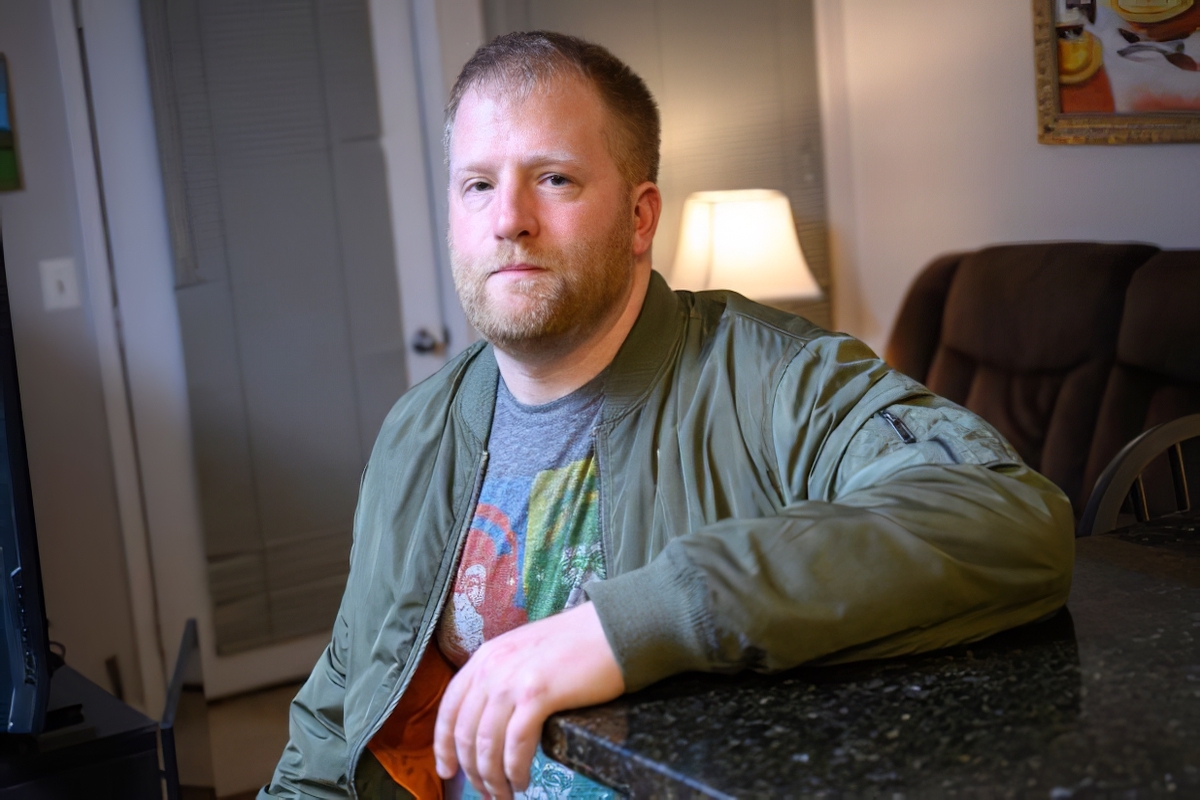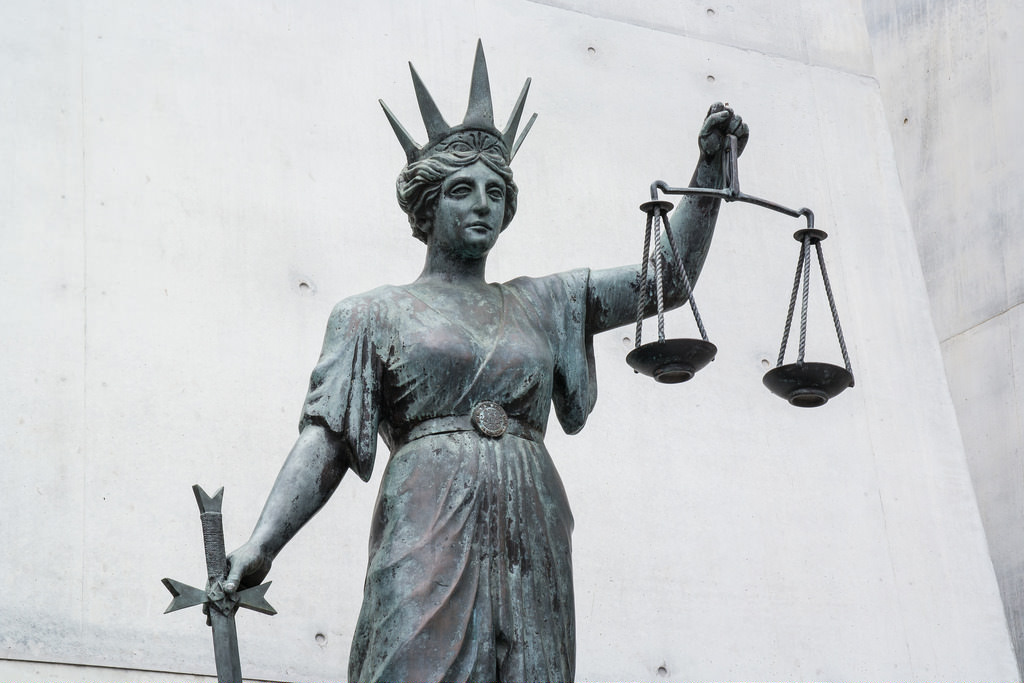Feminism
How Anonymous, Unproven Accusations Turned Mike Tunison's Career Into MeToo Road Kill
The truth is that we don’t actually know what ultimately will become of men such as Tunison.

Mike Tunison has become the latest writer to go public with details of life among The Canceled. In a newly published essay, the Washington-Post-journalist-turned-restaurant-janitor explains what it’s like to go through the #MeToo false-accusation meat grinder and come out the other side with your career reduced to tiny shards. His friends and colleagues abandoned him, and he was unable to earn an income in his field—all thanks to writer Moira Donegan’s “Shitty Men in Media” list, a crowdsourced database that became a forum for anonymous, unproven allegations in 2017:
Almost immediately after its release, a close friend of 10 years cut me off and hasn’t spoken to me since, even after I reached out to him. Day after day, I’m tortured by the thought that even more people will learn of the allegations or that I’ll be unexpectedly attacked for them online. Too often, I’ve found myself hanging out with friends as the discussion turned to celebrities being MeToo’d, and been incapable of revealing what happened to me. Sooner or later, I’ve feared, they’ll know, too. It’s been more than a year since I’ve dated. Working three low-paying jobs means I’m always busy—and broke. Plus, any woman who does the usual, pre-date research online could stumble upon the list. How could I explain it away in the early stages of a relationship?
Tunison wasn’t famous, which made things worse. Though he was sufficiently well-known to be targeted with false allegations (having written a book with a major publisher and been a frequent contributor to Deadspin), he wasn’t one of those well-connected intellectual celebrities who could call in career-saving support from powerful allies. “My story is noteworthy,” writes Tunison, “only because I’m one of the least powerful men to have been publicly accused in the #MeToo era. What makes this event intolerable isn’t just that the allegations against me are false. It’s that I have no idea who made them.”

Lately, Tunison has come upon especially difficult times. Working as a janitor and canvasser hasn’t left him enough money to get the inspection tags on his car renewed. When he was pulled over and ticketed recently, Tunison took to Twitter for help. That’s when Stephen Elliott, a man who knows exactly what Tunison is going through, decided to raise funds for him with a GoFundMe page—which, as of this writing, has raised almost $4,000. (Having been included on Donegan’s Shitty Media Men list alongside Tunison, Elliott is suing Donegan for defamation. Ironically, Tunison himself disagrees with Elliott’s lawsuit, and wrote that the list probably did more good than harm—though that didn’t stop Donegan from immediately blocking him on social media.)
“I think a lot about how there is no community for the accused,” Elliott told me. “MeToo is all about community for the accusers. But the accused are shunned by their networks, even their family in some cases. Often, they’re afraid to talk to each other because of guilt by association, and because they think, or some do, that one day their old tribes will take them back. [But] If you’re a liberal in the literary community, once you’ve been cast out, there’s no way back.”
I’ll take all the help I can get. I badly need it. No qualms about this. If anything, I took grief for going too easy on Moira Donegan. And what happened? She blocked me and hasn’t acknowledged my account in two weeks. Meanwhile she has a new job and a book deal. https://t.co/9yF1fMq9xp
— Mike Tunison (@xmasape) February 12, 2020
Tunison can’t be exonerated because he hasn’t been formally charged. (In fact, one common feature of the men catalogued on the Shitty Men List is that none of the alleged wrongdoing seems to have been the subject of criminal prosecution.) And since Tunison doesn’t know who made the accusations, he has no venue in which to prove his innocence. An accuser claims there’s an incriminating human-resources file on Tunison at the Washington Post. But Tunison says he was told that nothing along those lines is contained in his employment record.
Donegan herself initially made a half-hearted attempted to remain anonymous in 2017. But the former New Republic assistant editor went public amid social-media acclaim, and was rewarded with a book deal and a column in the Guardian. She also remains unrepentant about creating a medium for people to make unproven career-ending allegations from behind a cloak of anonymity. “The value of the spreadsheet was that it had no enforcement mechanisms,” she told Vox. “Without legal authority or professional power, it offered an impartial, rather than adversarial, tool to those who used it. It was intended specifically not to inflict consequences, not to be a weapon—and yet, once it became public, many people immediately saw it as exactly that.”
Donegan’s claim that she didn’t intend for the list to be weaponized strains credulity. By late 2017, it was already well-known that the “Believe Women” campaign was leading to false accusations. In those heady days, even speaking up for due process was cast as a sort of thoughtcrime. Many writers didn’t speak out against the list, or the lack of any presumption of innocence, because they knew that, in this atmosphere, ideologically motivated opponents could simply throw their name on the list, too.

There are now so many “canceled” people out there that they have created their own electronic civil society, which has acted as feedstock for media outlets (including Quillette) that seek to give the accused a voice. Or as a New York Times headline writer put it in November, Those People We Tried to Cancel? They’re All Hanging Out Together. But this can be a socially and ideologically jarring experience for the canceled, as they typically are replacing a monolithically progressive peer group with one that is more free-wheeling and classically liberal in its outlook.
And all the while, they are being lectured by their old woke pals about how cancel culture is just a figment of their guilty imaginations. “It seems at least possible that tweets are just tweets,” wrote Osita Nwanevu in a New Republic article entitled The “Cancel Culture” Con, “that as difficult as criticism in the social media age may be to contend with at times, it bears no meaningful resemblance to genocides, excommunications, executions, assassinations, political imprisonments, and official bans past. Perhaps we should choose instead to understand cancel culture as something much more mundane: ordinary public disfavor voiced by ordinary people across new platforms.”
And in that aforementioned Times article, John McDermott suggested that many of the canceled are doing just fine: “At the bottom end, cancellation consists of some mild, inconsequential criticism. On YouTube, vloggers cancel each other and even themselves with startling regularity, often for petty or invented grievances.”
It’s early days yet, but it now seems we are living through a sort of unintended crowdsourced social experiment. The truth is that we don’t actually know what ultimately will become of men such as Tunison. But as the sample set grows larger and the longitudinal data becomes more detailed, it will be interesting to compare the fates of these men.
At the center of this experiment are figures such as Elliott, who, having gone public with accounts of being falsely accused, have become connective nodes in the network of canceled individuals and their non-canceled supporters. In the face of witch hunts inspired by #SocialJustice mobs, they’ve effectively become unpaid volunteers in the fight for actual social justice. “I’m all about community for the accused,” he told me, “though I can’t always convince people [to go public].”
In our conversations, Elliott describes a sort of back-office writer’s underground, which allows canceled talent to stay in the game, so long as the men stay under the radar—at least for now. “There are a lot of people who are secretly working for places, doing the work from home,” Elliott says. “They’re worried [that] if word gets out, they’ll lose their jobs. It’s so crazy. It’s the people who aren’t that famous and don’t have a lot of money that really get hurt.”






